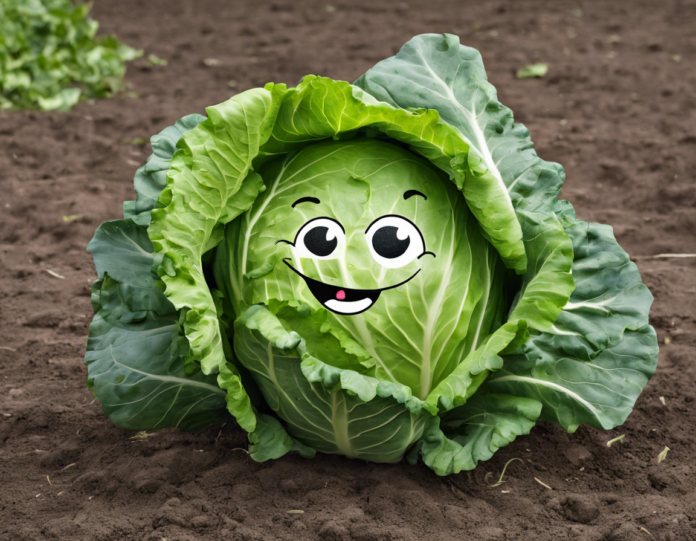Introduction
Happy cabbage, a term commonly used to refer to sauerkraut, a fermented cabbage dish, has been cherished for its unique taste and health benefits for centuries. With its tangy flavor, happy cabbage has gained popularity as a versatile and nutritious addition to various diets. In this comprehensive guide, we will delve into the benefits of happy cabbage and explore how this probiotic powerhouse can support overall health and well-being.
What is Happy Cabbage?
Happy cabbage, or sauerkraut, is a traditional fermented cabbage dish that originated in Germany. To make sauerkraut, cabbage is finely shredded, salted, and then left to ferment for several weeks. During the fermentation process, beneficial bacteria, such as Lactobacillus, naturally develop, giving sauerkraut its distinct tangy flavor and promoting a host of health benefits.
Nutritional Profile of Happy Cabbage
Sauerkraut is not only flavorful but also packed with essential nutrients. Here are some key components of sauerkraut’s nutritional profile:
- Probiotics: As a fermented food, sauerkraut is rich in probiotics, which are beneficial bacteria that support gut health and boost the immune system.
- Vitamins: Sauerkraut is a good source of vitamins C, K, and B vitamins, which are essential for overall health and well-being.
- Fiber: Sauerkraut is high in fiber, which supports digestion and helps maintain a healthy gut microbiome.
- Antioxidants: Sauerkraut contains antioxidants that help reduce inflammation and protect against chronic diseases.
Health Benefits of Happy Cabbage
1. Gut Health: Happy cabbage is a potent source of probiotics that promote a healthy gut microbiome. The beneficial bacteria in sauerkraut can improve digestion, reduce inflammation, and enhance nutrient absorption.
2. Immune Support: The probiotics in happy cabbage play a crucial role in supporting the immune system. By maintaining a balanced gut microbiota, sauerkraut can help prevent infections and boost overall immunity.
3. Weight Management: Including sauerkraut in your diet can aid in weight management. The fiber content of sauerkraut promotes feelings of fullness, reducing calorie intake and supporting weight loss.
4. Heart Health: Sauerkraut contains antioxidants and beneficial compounds that support heart health. Consuming sauerkraut regularly may help lower cholesterol levels and reduce the risk of heart disease.
5. Mental Well-being: The gut-brain connection is well-established, and a healthy gut microbiome is essential for mental well-being. Happy cabbage’s probiotics may help alleviate symptoms of anxiety and depression.
How to Incorporate Happy Cabbage into Your Diet
Adding happy cabbage to your diet is easy and versatile. Here are some creative ways to enjoy sauerkraut:
- Topper: Add sauerkraut as a flavorful topping to sandwiches, salads, or wraps.
- Side Dish: Serve sauerkraut as a side dish alongside grilled meats or roasted vegetables.
- Ingredient: Use sauerkraut as an ingredient in dishes like stir-fries, casseroles, or even tacos for a tangy kick.
- Snack: Enjoy sauerkraut as a crunchy and satisfying snack on its own or paired with cheese and crackers.
Selecting Quality Happy Cabbage
When choosing sauerkraut, opt for varieties that are unpasteurized and contain live cultures to ensure you reap the full benefits of probiotics. Additionally, look for sauerkraut that is low in added sugars and free from preservatives for a healthier option.
Homemade Happy Cabbage
For those who prefer a hands-on approach, making sauerkraut at home is a rewarding experience. With just cabbage, salt, and some patience, you can create your own batch of happy cabbage brimming with probiotics and flavor.
FAQs (Frequently Asked Questions)
1. Is there a difference between regular cabbage and sauerkraut?
Regular cabbage is fresh and crisp, while sauerkraut is fermented cabbage that has a tangy flavor and is rich in probiotics.
2. Can I eat sauerkraut if I have digestive issues?
Yes, sauerkraut can be beneficial for those with digestive issues as it contains probiotics that support gut health and digestion.
3. How much sauerkraut should I consume for health benefits?
Including a small serving of sauerkraut (about 1/4 to 1/2 cup) a few times a week can provide health benefits.
4. Is sauerkraut suitable for vegans and vegetarians?
Yes, sauerkraut is a plant-based food that is suitable for vegans and vegetarians.
5. Can I cook sauerkraut?
While sauerkraut is typically consumed raw to preserve its probiotics, it can also be cooked at low temperatures to incorporate its unique flavor into cooked dishes.
In conclusion, happy cabbage, or sauerkraut, is not only a delicious and versatile food but also a nutritional powerhouse with numerous health benefits. By incorporating sauerkraut into your diet and enjoying its probiotic-rich goodness, you can support your gut health, immune system, and overall well-being. Experiment with different ways to enjoy sauerkraut and relish in the goodness of this fermented favorite.












